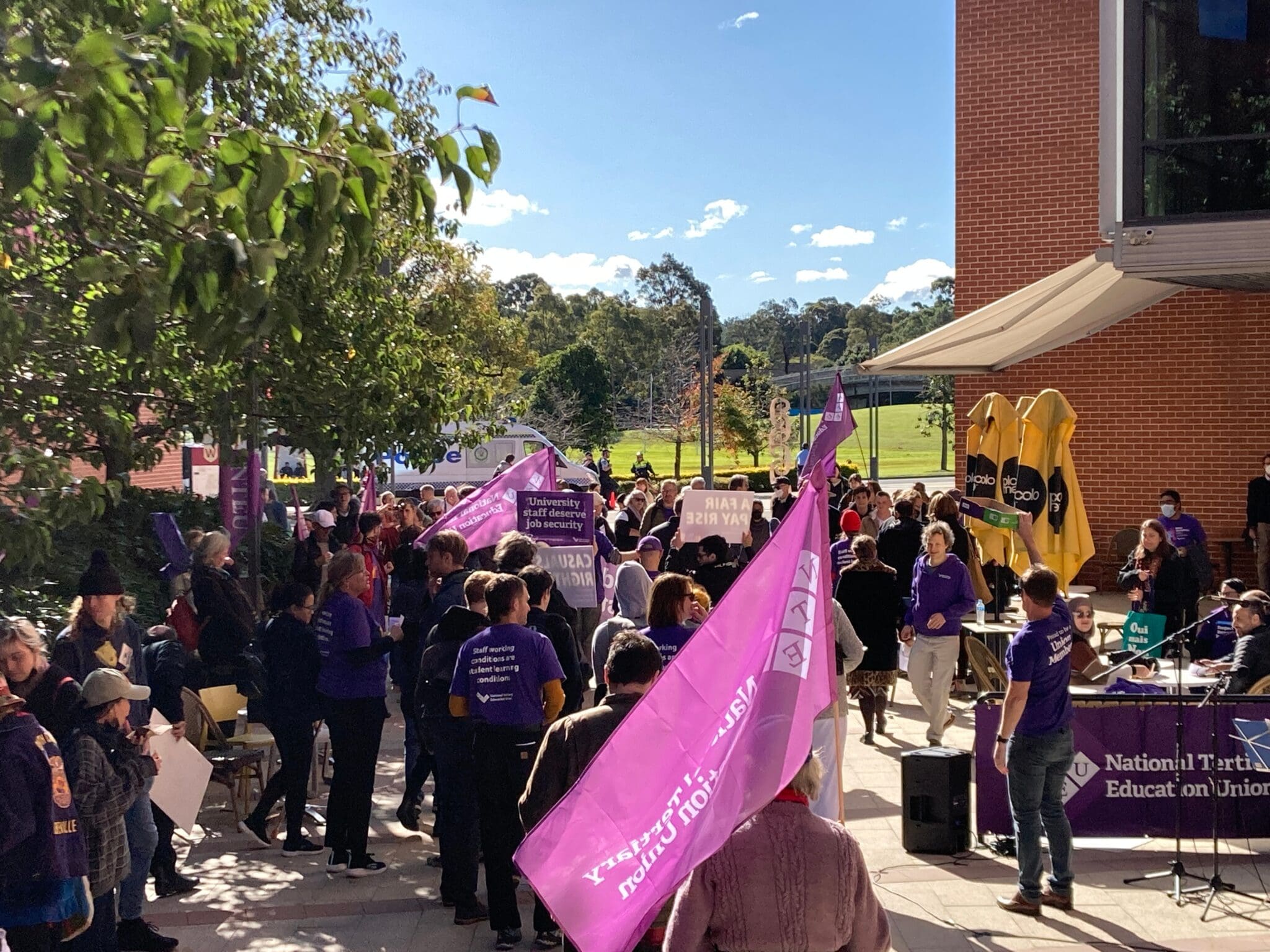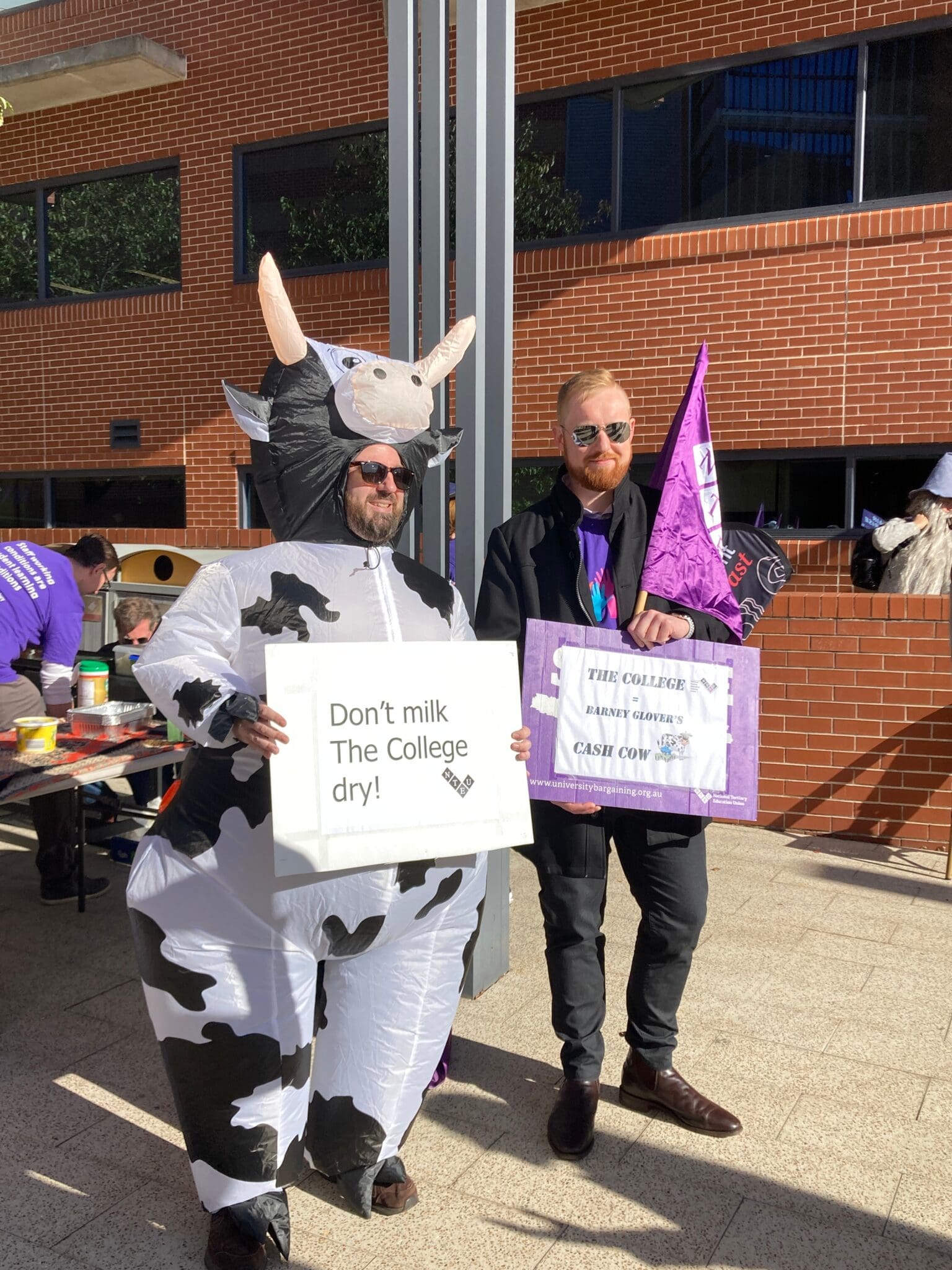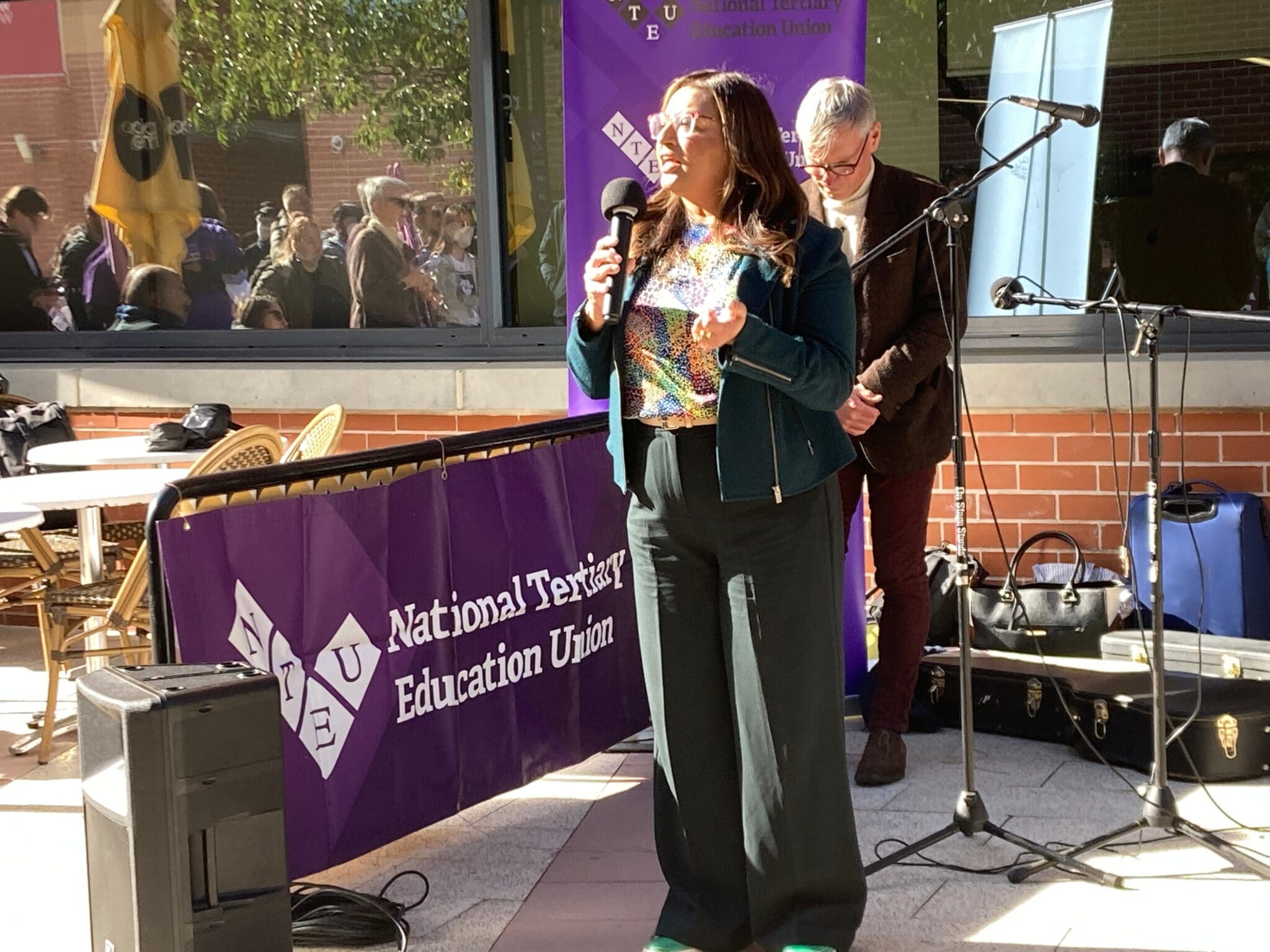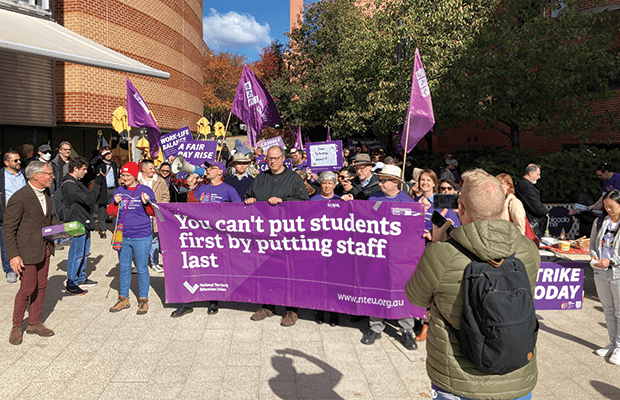Over 100 staff and students from Western Sydney University (WSU) formed picket lines at the South Parramatta campus yesterday as a part of a half-day strike organised by the National Tertiary Education Union (NTEU).
Strikers voiced their concerns over student learning conditions and staff working conditions, with an emphasis on insecure employment, high rates of casualisation, job cuts, insufficient pay rises and increasing corporatisation of the University.
In its 2021 Annual Report, WSU reported a $143 million surplus, double that of 2020. Despite these profits, NTEU WSU Branch President David Buchrell said that the University has continued to shrink its staffing expenses.
“For the first time in the history of this institution, staff benefits…are now less than half of the total expenditure of the total budget. This university spends less on staff than it does on stuff,” Buchrell said.
In a press release, the NTEU described WSU management’s offer of a 2 per cent per annum pay rise as “pitiful”.
“Despite negotiating for nearly 12 months, University management has not shifted from a low-ball offer. In the context of rising costs of living, this offer is clearly unacceptable,” said Buchrell.

Dr Nick Best, a sessional academic representing WSU’s Nirimba campus (the College) further condemned this discrepancy between the University’s earnings and spending. Aptly dressed as a dairy cow, he told Honi that staff at the College had a clear message.
“We [the students] shouldn’t be treated as cash-cows and milked to death,” Best said.
The strike is the first ever in the history of the College, a non-profit, WSU-owned institution that assists students in gaining alternative entry into university through Academic Pathway Programs.
“Because the College is a non-profit organisation, any surplus above and beyond [the royalty the College has to pay the University] also goes to the University,” Best said.

A WSU librarian from the South Parramatta campus told Honi that their workload has increased substantially with job cuts, which has resulted in a material effect on student learning.
“We’re open from 8am to 7pm, and lately we’ve only had three loan staff on… it’s just been a real struggle,” they said.
“We used to have people in the library for academic support and that’s no longer there. That’s especially beneficial to international students, who now have to go online to Studiosity, and they only get a certain amount of Studiosity sessions.”
Protesters also condemned Vice-Chancellor Barney Glover, who currently receives a million dollar salary.
“Barney has had all this extra money and is keeping it,” the librarian said.

NSW Labor Senator Tony Sheldon spoke out in solidarity with NTEU members, highlighting the “chronic instability” of casual work within the sector.
“Work is typically only ensured for one semester at a time and employment is only confirmed a week or so before semester begins,” Sheldon said.
NSW Greens Senator and former academic Mehreen Faruqi also criticised the corporatisation of higher education.
“I have been in the sector and I have seen universities becoming businesses, where education is sold as a commodity, where students are seen as customers, and where staff as mere service providers,” Faruqi said.

The strike culminated in a march across campus to the empty chancellery, as Glover chose to work from home during the strike, with protestors vibrantly chanting: “Barney Glover we’re talking to you, we deserve a pay rise too!”
WSU’s strike also comes after a historic 3-day strike at the University of Sydney.





